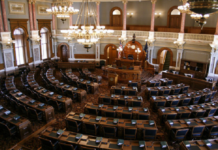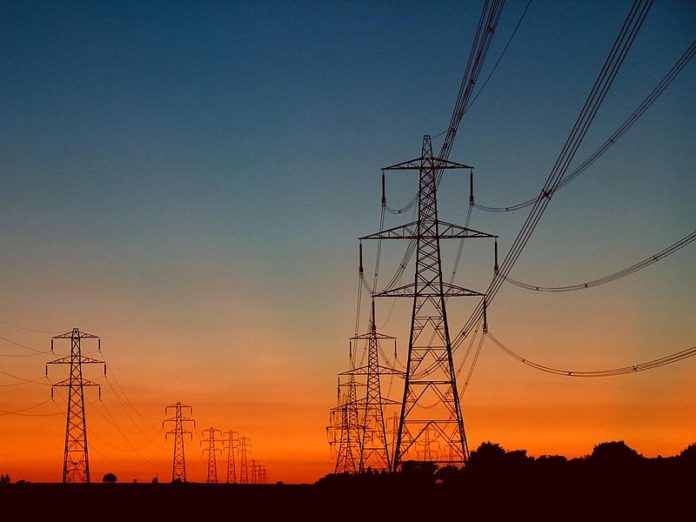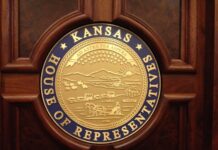(Updated to include reaction from Kansas chamber).
Evergy on Friday reached a unanimous settlement with parties in its electric rate case, a deal that calls for increasing rates in most of Kansas while cutting them in the Kansas City area.
The deal would increase rates in central Kansas by a net of $74 million, down from the $204 million that the utility originally sought from the Kansas Corporation Commission.
It will be about a 4% increase for residential customers, or an estimated $4.64 a month for typical residential customers who live in Evergy’s central territory.
Evergy has about 736,000 customers who live in its central service area, which covers Topeka, Pittsburg, Wichita, Hutchinson and other communities in the eastern third of Kansas.
Meanwhile in the Kansas City area, Evergy agreed to a $32.9 million rate cut – or 4.75% – compared to the $14 million increase that the utility originally sought from state regulators.
A typical residential customer in Kansas City will see a $6.07 a month decrease in their bill, the company said.
There are about 273,000 customers in the Kansas City area, which covers Lenexa, Overland Park and other communities nearby.
“This is a very strong result for our customers,” said Chuck Caisley, senior vice president of public affairs for Evergy.
“It will actually mean that Evergy Kansas electric rates have only increased 1% since 2017,” he said in an interview.
The agreement must still be approved by the Kansas Corporation Commission. An order is expected to be issued by December.
David Nickel, consumer counsel for the Citizens’ Utility Ratepayer Board, called the settlement “very fair.”
Given the fact that Evergy hasn’t sought a base rate increase in five years, the ratepayer board believes the settlement is a “good result as attested by the large number of signatories.”
Caisley said the agreement is supported by everyone involved in the rate case, although he added there are a few that won’t sign the deal because of “rate design issues” or how the rate changes would be spread across different classes of ratepayers.
Caisley said the results of the agreement demonstrate that Evergy’s merger with Westar is producing results for consumers, although he conceded that it might not make Kansas attractive to utility investors in the long term.
“The fact that these customers are getting significantly enhanced customer service and investments in generation and reliability, to only go up 1% in the state is really a strong result for them as a whole,” Caisley said.
The proposed rate increase is the first one since 2018, when Kansas City Power & Light merged with Westar.
The proposal has been watched closely in political and economic development circles where Evergy’s critics have pushed legislative measures to reduce electric rates.
The Kansas Chamber of Commerce was among the groups that intervened in the case in an effort to keep electric rates down.
“While this settlement is significantly better for Kansas ratepayers than what Evergy originally proposed, the Kansas Chamber will continue to push for structural reform to increase transparency and accountability at the KCC and in the rate making process to address our state having the highest energy costs in the region,” said Alan Cobb, president and CEO of the chamber.
Other parties joining the case with concerns about electric rates included the Blue Valley, Shawnee Mission, Olathe and Wichita school districts.
They say they are spending millions on electricity and the outcome of the rate case had significant implications for their budgets.
Their budgets depend primarily on tax revenues to finance education and that the results of the ongoing rate case could significantly impact how they deal with financing and structuring their budgets.
The chamber was joined by the Kansas Industrial Consumers Group, a coalition of big power users that includes heavyweights such as Cargill, Spirit AeroSystems and Goodyear.
Kansas has had among the highest electric rates among seven midwestern states in recent years according to the federal Energy Information Administration.
In July, Kansas ranked fourth in rates per kilowatt hour at 13.70 cents for residential customers in seven states across the Midwest and the north central United States.
The leader was Minnesota at 15.5 cents followed by Iowa (15.1 cents) and Missouri (14.66 cents).
Also in July, Kansas ranked fourth in rates per kilowatt hour at 11.4 cents per hour for commercial users. The leader was Minnesota at 13.1 cents per hour, followed by Iowa at 12.1 cents and Missouri at 11.2 cents.
State regulators at the Kansas Corporation Commission reined in Evergy from its original request for a $218 million electric rate increase across the state.
Evergy first wanted a rate increase for the Kansas City suburbs, but KCC staff proposed a rate cut of about $54.2 million. The utility settled at a $32.9 million cut.
The company wanted a $204 million increase in the central area, but staff proposed a $34.7 million increase. The final agreement calls for a $74 million increase.
“Are there some issues that we would have liked to see go a different way? Absolutely,” Caisley said in an interview.
“That is why we will continue to have conversations with regulators and stakeholders to address some of those…unresolved policy issues that will be left after this case is done,” Caisley said.
Caisley cautioned that the rate case could send a message to investors outside the state, which could make it harder to secure capital in the future to supply electric power needed to fuel the flurry of economic development activity that’s now taking place.
“When investors look at Kansas as a result of this case, they will see a state that has given them a haircut relative to the financial return and the certainty of return that they could get in neighboring states,” Caisley said.
“We’ve got communities across Kansas clamoring for more investment to create more capacity because we’re in an economic development boon time right now,” Caisley said.
“We’re at a little bit at cross purposes there of either attracting capital to fuel infrastructure investment or is Kansas saying that it would rather not see that investment and have a slowdown effect on economic development,” he said.















